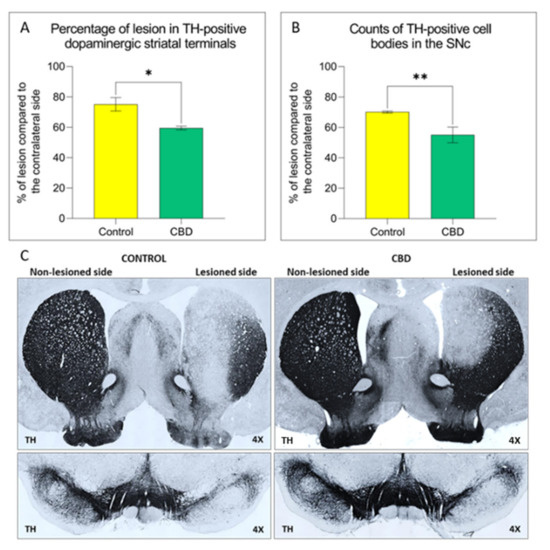 “Parkinson’s disease (PD) is a neurodegenerative disorder characterized by the loss of dopaminergic neurons in the Substantia Nigra pars compacta, leading to classical PD motor symptoms. Current therapies are purely symptomatic and do not modify disease progression.
“Parkinson’s disease (PD) is a neurodegenerative disorder characterized by the loss of dopaminergic neurons in the Substantia Nigra pars compacta, leading to classical PD motor symptoms. Current therapies are purely symptomatic and do not modify disease progression.
Cannabidiol (CBD), one of the main phytocannabinoids identified in Cannabis Sativa, which exhibits a large spectrum of therapeutic properties, including anti-inflammatory and antioxidant effects, suggesting its potential as disease-modifying agent for PD.
The aim of this study was to evaluate the effects of chronic treatment with CBD (10 mg/kg, i.p.) on PD-associated neurodegenerative and neuroinflammatory processes, and motor deficits in the 6-hydroxydopamine model. Moreover, we investigated the potential mechanisms by which CBD exerted its effects in this model.
CBD-treated animals showed a reduction of nigrostriatal degeneration accompanied by a damping of the neuroinflammatory response and an improvement of motor performance. In particular, CBD exhibits a preferential action on astrocytes and activates the astrocytic transient receptor potential vanilloid 1 (TRPV1), thus, enhancing the endogenous neuroprotective response of ciliary neurotrophic factor (CNTF).
These results overall support the potential therapeutic utility of CBD in PD, as both neuroprotective and symptomatic agent.”
https://pubmed.ncbi.nlm.nih.gov/34445626/
https://www.mdpi.com/1422-0067/22/16/8920

